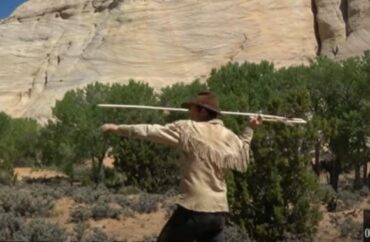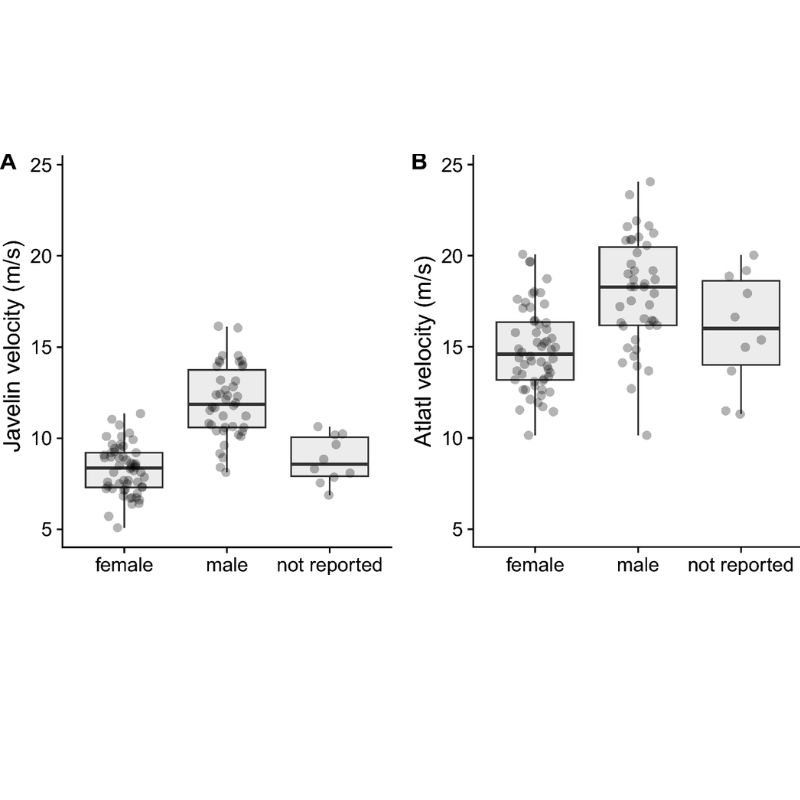
Study authors suggested their findings warranted future inquiry, while media went much further
Some media outlets were quick to trumpet a Kent State University study which suggested a possibility that primitive female hunters may have been able to kill as well as males if they used a specific weapon.
“Ancient spear find proves cave women had more ‘equal’ role in hunting,” Yahoo News wrote in its article.
An article in Interesting Engineering took a similar approach, claiming “stone age female hunters launched this weapon for equality” and that “women often outperformed men without relying on brute strength.” Other science news outlets ran with headlines that claimed the weapon “equalized” hunting.
But the professor leading the study never made such a claim.
Assistant Professor Michelle Bebber at Kent State University’s anthropology department, along with four other researchers, co-authored a study titled “Atlatl Use Equalizes Female and Male Projectile Velocity.” An atlatl is a type of spear.
The researchers in the abstract directly state they are out to test the hypothesis that “the atlatl acted as an equalizer.”
“One hypothesis for forager atlatl adoption over its presumed predecessor, the thrown javelin, is that a diverse array of people could achieve equal performance results, thereby facilitating inclusive participation of more people in hunting activities,” the authors wrote.
“We tested this hypothesis via a systematic assessment of 2160 weapon launch events by 108 people who used both technologies,” they wrote. “Our results show that, unlike the javelin, the atlatl equalizes the velocity of female- and male-launched projectiles.”
The College Fix reached out to four of the study members via email multiple times in the last two weeks and requested comment on the hypothesis of the study and whether there were any biological changes in the human body in the last tens of thousands of years that may have bearing on the study.
The Fix also asked if there was any direct correlation between atlatl equalizing velocity between males and females and proof that women hunted in similar capacities to men on a broad scale. There has been no response from any author.
The median velocity for the atlatl was still higher for males than for females, according to the results (pictured).

The study presents two primary conclusions in the results and discussion sections: the first, that the “atlatl ‘likely’ introduced a unification rather than a division of labor,” and the second, that the near equal velocity of female darts to male darts, along with the close accuracy scores, should call into question “the assumption” that man was the only hunter.
The study does not directly claim that women had an equal role to men in this capacity.
In fact, the authors write that the “practice of female hunting should be a prediction to be tested, or at least not prematurely disregarded, in archaeological contexts in which the atlatl is either documented as the dominant weapon system or inferred to be employed.”
The key phrases are “should be a prediction to be tested” and “at least not prematurely disregarded.”
The authors are trying to address the dismissal of the “possibility of past female hunting.” They note a “lack of consistent javelin, atlatl, dart, bow, and arrow preservation in the Pleistocene archaeological record.”
They conclude that the use of atlatl “would have been an elegant, effective weaponry solution.”
The Fix reached out to a handful of anthropologists at Hunter College and Ohio State University for comment on the study, but none responded.
Right now The College Fix has a back-to-school campaign to help us continue to support our amazing student journalists. A donation today will be matched thanks to a generous limited-time matching gift opportunity from a friend of The Fix! CLICK HERE for more details — and thank you!
MORE: Professors explore ‘feminist epistemologies’ of paywalls
IMAGE: Outdoor Life/YouTube
Like The College Fix on Facebook / Follow us on Twitter






Please join the conversation about our stories on Facebook, Twitter, Instagram, Reddit, MeWe, Rumble, Gab, Minds and Gettr.